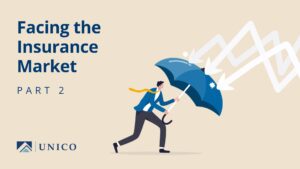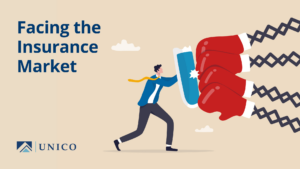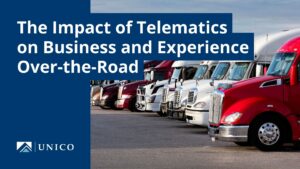What is commercial auto insurance?
Automobile insurance serves as a safeguard against financial hardship in the event of an auto accident and assists in paying for damages if your company vehicle(s) is damaged, starts on fire or is stolen.
Every state, with the exception of New Hampshire, requires all drivers to carry liability insurance.
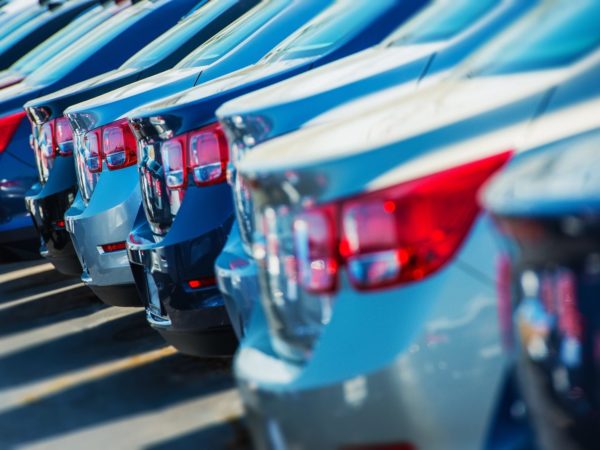
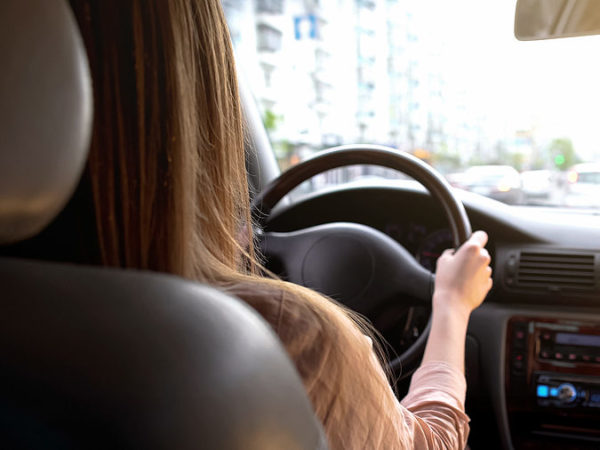
Protection beyond personal auto insurance
Simply put, personal auto insurance doesn’t provide adequate coverage for any accidents that occur while policyholders are driving for business purposes.
In the absence of commercial auto coverage, companies would have to pay out of pocket should employees get in an accident while making deliveries, picking up supplies or using a vehicle to perform essential business functions.
What does commercial auto cover?
Bodily injury liability and property damage liability
- Liability insurance covers the costs of damage that you may do to others, including property damage and bodily harm. It also covers legal fees, if you were the driver who caused the accident.
- Property damage liability coverage compensates to replace or repair property that you destroy (e.g., other vehicles, fences, buildings).
- Bodily injury coverage compensates for medical bills and lost wages. It also pays for pain and suffering damages up to your policy limits.
Collision coverage
- Pays to repair your own vehicle after an accident.
- Coverage applies after deductible is met.
Comprehensive coverage
- Pays for damages to your car that were not caused by an accident, such as fire, theft, vandalism, natural disasters and hitting an animal.
- Glass coverage is also covered under this portion of the policy.
- Coverage applies after deductible is met.
Medical payments
- Medical payments (MedPay) coverage compensates for medical expenses for the driver and his or her passengers as a result of an accident, regardless of who was at fault.
Personal injury protection and no-fault coverage
- Personal injury protection (PIP) coverage pays for medical expenses and lost wages for the driver and his or her passengers who are injured in an accident. PIP also covers funeral expenses, and is required in 16 states.
- No-fault coverage pays for losses, regardless of who was at-fault in the accident.
Uninsured/underinsured motorists coverage
- Uninsured motorist (UM) coverage pays for medical bills if you are hit by a driver who does not have automobile insurance or if you are involved in a hit and run accident. This coverage is required in many states.
- Underinsured motorist (UIM) coverage takes effect when you are hit by a driver who does not have enough automobile insurance to cover all of your medical bills. In this circumstance, the at-fault driver’s insurance would pay to its maximum, and then UIM would cover the remainder up to your maximum.
- In some states, UM and UIM cover property damage.
Third-party property damage
A general liability policy will also protect your company in the event that you are found liable for damage to someone else’s property. GL policies typically cover damage to tangible property as well as damages to the use of the tangible property.

